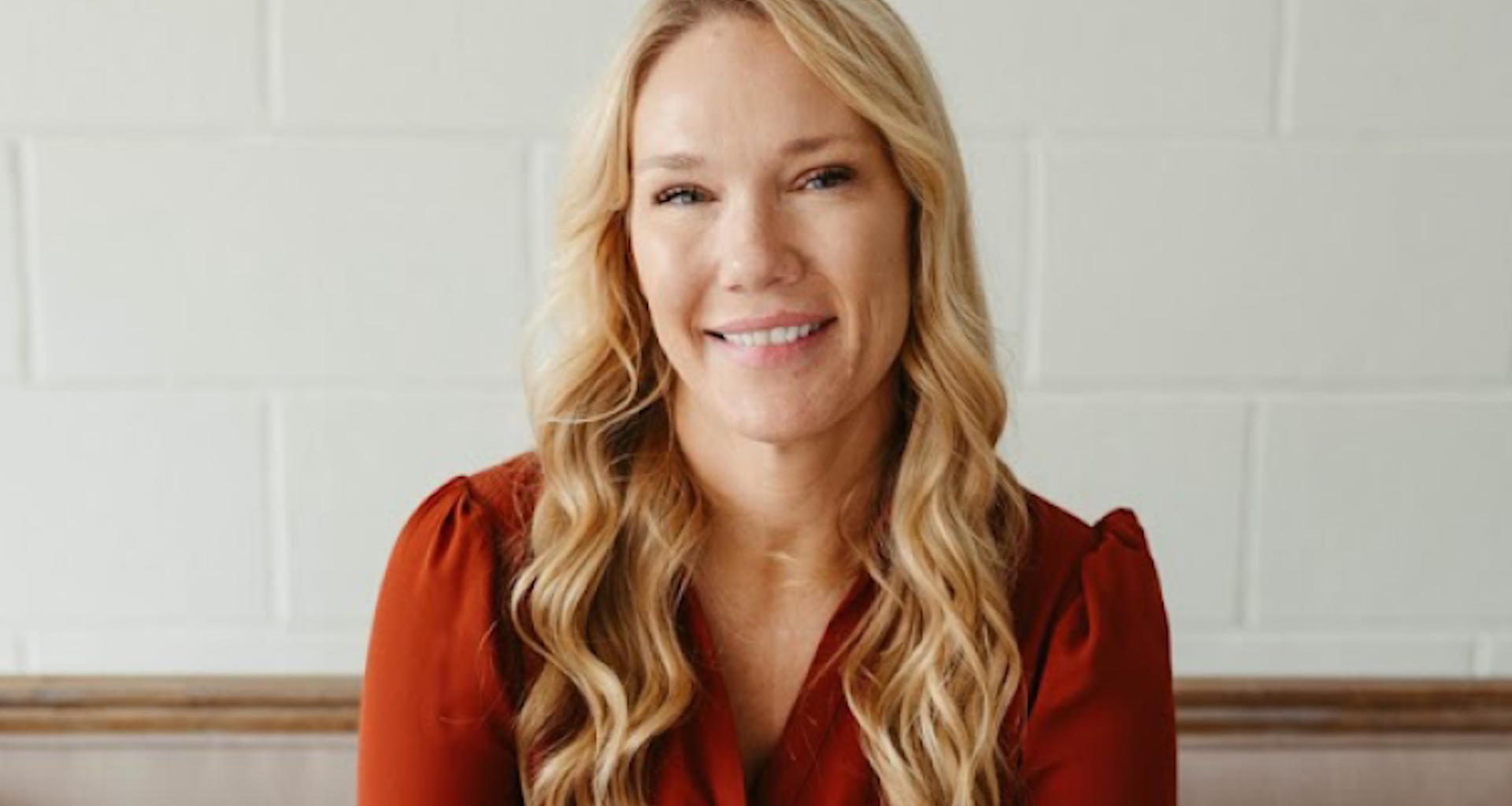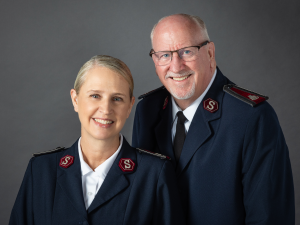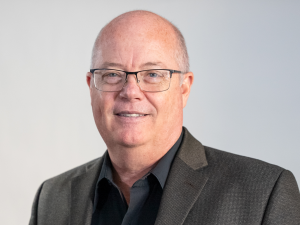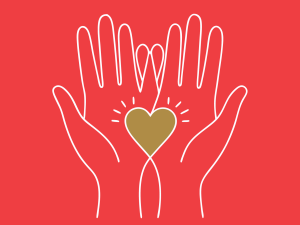Did you know every 39 minutes, someone dies in a drunk-driving accident in the United States? That’s about 37 people a day.
We know drinking and driving is deadly, yet it continues to happen across the country.
According to one estimate, on average, those who drive drunk will be intoxicated 80 times before being caught. In addition, studies show the odds of being involved in a fatal auto accident increase with each additional DUI arrest.
It’s a fate Shauna Zeuske tempted again and again.
In 2015, she was arrested for driving under the influence. That DUI was her third. Within a month, she’d received two more and ended up with a three-year jail sentence. She was able to get some time shaved off her sentence, but within six months of returning home, she got her sixth DUI.
When she went back to jail, she told her public defender she wanted to go to The Salvation Army. They allowed it, so she entered the Adult Rehabilitation Center program. These residential programs provide spiritual, emotional and social assistance to individuals who are experiencing a variety of social, emotional and spiritual challenges, including issues relating to substance abuse. Shauna feared she wouldn’t be able to get sober, but she stuck with it, because as she said, “she desperately wanted to stop drinking.”
And in 2021, she graduated from The Salvation Army San Diego Adult Rehabilitation Center.
She went on to manage the Transitional Living Center at The Salvation Army Door of Hope Rady Campus in San Diego, helping other women looking for transformation too.
And today, she works as a financial controller for a construction company. She recently married and continues to sponsor and mentor others through their own challenges.
Shauna is on the show to share more about her own experience on the road to recovery.
Show highlights include:
- What Shauna Zeuske’s household was like growing up and when she was exposed to alcohol and drugs.
- When she first left home.
- When she received her first DUI.
- Why she asked her public defender to be released to The Salvation Army.
- What kept her in the program.
- The camaraderie she found at The Salvation Army.
- How she became a manager of the Transitional Living Center at the Door of Hope in San Diego.
- Why holding house meetings with program participants was impactful to Zeuske.
- How loved ones of those facing addiction can support.
- Advice for those contemplating seeking help for addiction but are hesitant.
Listen and subscribe to the Do Gooders Podcast now. Below is a transcript of the episode, edited for readability. For more information on the people and ideas in the episode, see the links at the bottom of this post.
* * *
Christin Thieme: Shauna, welcome to the Do Gooders Podcast. Thank you so much for being here today.
Shauna Zeuske: Thank you for having me.
Christin Thieme: Can you share a little bit more for us about the household that you grew up in?
Shauna Zeuske: Yeah, definitely. So my parents were both addicts. My dad was… Alcoholism, it’s an all-inclusive addiction in and of itself. But I feel like because I’ve done both, there’s a distinct difference between alcohol and drugs. It’s the same chaos, but just different stuff. My dad was both. My mom never touched a drink of alcohol until he died. So they were kind of functioning. They could hold jobs, but they weren’t functioning people in society or in our families.
My dad was super abusive, physically, emotionally. I look back sometimes and wonder how even any of us made it out with any kind of half of a mind to be normal in society. My mom was just kind of shut down my whole life. Or a lot of times when we didn’t have food, my shoes would have holes. Everything that we wore were hand-me-downs. My dad was in and out of prison for his alcohol and drug use. We were welfare kids. We were the ones that are standing in line waiting for a turkey on Thanksgiving Day. So it was pretty bleak a lot of times.
I remember some happy times, but when I talk about them with other people, it’s my idea of what happy was, I guess, because they still are like, “I don’t see the parallel there with happiness.” But in it to me, it was like, “Oh, well, those were the good times.” They’re nothing compared to what the good times look like today, but at least I have some good memories.
Growing up, I had a lot of resentment towards other family members because they didn’t help and they didn’t save us. But I can see now being in that same position with my own siblings who are in their addictions, I can’t do anything to save them either. And I can’t help my nieces and nephew. And it’s a really difficult position to be in to watch it and not be able to do anything even when you’re family.
Christin Thieme: Yeah. I can’t imagine. How old were you when you left home?
Shauna Zeuske: 17.
Christin Thieme: And then I know you’ve had experience, you alluded to it, with your own addictions and with DUI specifically. So when did you get your first DUI?
Shauna Zeuske: My first DUI, I think it was in 2006. So I was 25 years old. My last one was at 35.
Christin Thieme: Your last one. So how many are we talking?
Shauna Zeuske: I have six DUIs.
Christin Thieme: And you at some point along the way asked to be directed to The Salvation Army. Is that right? Can you share a little bit more about how that unfolded?
Shauna Zeuske: So with the first couple of DUIs, as far as court sentencing is concerned, they don’t send you to jail. After the third one, when the fourth one comes, it’s considered a felony and you get sentenced to prison for that. And at that time, I got the third, fourth, and the fifth all within a few months of each other. And I was waiting for sentencing on the third one and got the fourth and the fifth one. So when they sentenced me for that third, they put me in jail. They gave me a year sentence for that because it’s the maximum you can get. And then they re-rolled me for those other two and gave me the maximum prison sentence that you could receive.
And I still didn’t learn my lesson. I went home and within six months I got another DUI.
Christin Thieme: Oh, my goodness.
Shauna Zeuske:… which I had to get to a place of… I had to be beaten into a state of reasonableness. I had to be desperate enough to want help and to want to do something different. And I was. I just knew that I couldn’t live like that. Even though my relationship with God was so tenuous, I guess, from my own making obviously and I couldn’t… There was a lot of resentment there. And the space between us was all the space I put there with everything that I was doing. But I knew somehow that I needed that faith and I needed God to get me back to my life, to even have a life.
And I had asked if I could have a program, and they initially told me no. And I wanted specifically to go to The Salvation Army because I knew that it was a faith-based program. And eventually after six months of fighting them on it, they told me I could go to a program, but I had to go to The Salvation Army. But they didn’t know that I was requesting this. So it just happened to work out the way it was supposed to.
Christin Thieme: And what was that like once you were in the program? Can you tell us a little bit more about your experience and what kept you there?
Shauna Zeuske: It’s funny because I watched people go in and out of that program all the time, and I would think why… And I knew, I can look back now and know that they weren’t ready. They didn’t want it bad enough. And that ultimately is what kept me there. There was never a thought in my mind about leaving ever, not one time.
I knew at that point that I was done and I never wanted to live the life that I was living. My life wasn’t even terrible. It was just my internal condition was terrible. I would wake up every morning and be pissed off at God because I was still alive. And why do I have to live here? Why do I have to be alive? Why do I have to go through this? And being in that program, for me it was just I had to trust the process. People would say it, and I thought it was so cliche, but ultimately that’s what I was doing. Everybody else who came before me, I watched them get better and better and better. And I wanted to do the same thing. And so I knew that I had to follow in the footsteps of people came before in order to get what they had. And so I continued to do that.
And in The Salvation Army, they require you to do meetings and to get a sponsor and work the steps and do all of these things I knew I needed. Other programs don’t do that. And I was really grateful for that because they pushed me to be better. And I held onto that. And I knew eventually after a few months of being there, I knew that they offered other things. They offered the transitional living, which I could have gone home to my sister’s. I could have gone to my mom’s. I had other options. But it’s funny the way that God works in my life, because right before I was about to graduate the program, my sister, who I intended to go home to, moved to Texas with my other sister. And I was like, “Well, I guess God does for you what you can’t do for yourself.” And the decision was made. I’m going into transitional living and this is what I’m going to do.
So it wasn’t always easy, that’s for sure. But it was worth it.
Christin Thieme: We know from research that peer support activities reduces the risk of relapse. There’s one study in particular where 86% of people who attended support group meetings reported no drug or alcohol use within the 30 days preceding their six-month follow-ups. So how would you describe the camaraderie you found at The Salvation Army?
Shauna Zeuske: I’m going to cry just thinking about it. I recently… There’s so many things that I’ve been through in sobriety. My grandma died. I’ve had to deal with relationships with my family. I’ve had to cut off people who are drinking and using. I’ve lost a baby. I’ve gotten married. I’ve bought a house. Good and bad, things happen.
And I know what I learned best from The Salvation Army was that I alone can do it, but I cannot do it alone. There has to be other people involved. When I start to isolate is when I know that I’m at risk of drinking. And having the relationships that I have built in these rooms in The Salvation Army, I have several women from The Sally that we either went through the program together or they came in after me and I was that peer support person that came around and either we just went to meetings together or I worked steps with them or whatever it was.
They recently celebrated with me at my bachelorette party on a weekend getaway. And so we’ve become so much more than that. And I have a picture of eight of us standing at my wedding. It’s all Sally girls, that we’ve all banded together and refused. One of the women has moved. She’s had a baby, gotten married. She moved to Oregon and she flew here in one day to come and watch me get married and then flew home that same day.
Christin Thieme: Oh, wow.
Shauna Zeuske: That’s the kind of support that I have built.
Christin Thieme: Yeah. That’s incredible. I love it.
Shauna Zeuske: It’s amazing.
Christin Thieme: And you mentioned the transitional living center that you went to after the Adult Rehabilitation Center program. You later managed it. So can you talk a little bit about how that kind of came about and what was it like to be the mentor for people coming into that transitional living phase? What were some of your thoughts in that role? That’s a big job.
Shauna Zeuske: It is. And it was scary sometimes. So the woman who was managing it, same situation. She moved out. She had been there a couple of years. It was time for her to go. And they asked me if I would manage. And I initially was like, “I don’t know if that’s such a good idea.” But I’ve also learned that in this program, when people wiser and older than you ask you to do something, you don’t say no.
So I agreed. And I remember the first year was probably the hardest. Just it’s easy for me to be in the position of control or being in charge or that kind of thing because kind of the role I took in my family being the oldest. But it’s the other things. It’s when a woman comes home and she’s relapsed or calls you crying from a 7-Eleven and she’s drunk, or having to test a woman that has been there for a year and now for whatever reason, she has decided that she’s going to start using again, and kicking them out and watching as their life falls to shambles. And having to do that, that was the hardest part for me.
I have also gained some really amazing relationships with some of the women that have come through there because some stay for six months and some stay for two years. I had a woman in the middle of COVID ask me if I would sponsor her. She’d been sober for a couple years and her sponsor just kind of fell off with the whole COVID thing. And I had a hard time with the conflict of interest, I guess you could call it, because we knew each other. We lived there. I was managing. Is this really a good idea? And today, she still calls me when she’s in crisis and doesn’t really know what to do. And we meet, I’d say maybe every few weeks just to go over any kind of resentments that she’s holding on to and work that she needs to do. She’s obviously since moved out and she’s had a baby and life is amazing and different today.
But I’ve gained relationships and we lost a lot of people. But I think it made me stronger and it made me more aware of, I guess being more able to, just to be able to stand in it, even when it’s difficult to do the right thing but to do the right thing anyway.
Christin Thieme: You’ve said that one of your favorite things during that time was to hold house meetings at the Door of Hope with the other program participants. Can you describe why those meetings were so impactful to you?
Shauna Zeuske: I feel like that was when we really got to know each other the most. From my experience, the girls would kind of go off on their own and they’d go back to their families and they’d go to work and they would live life and they would forget how important the program is. And when I pull them back every month and remind them this is why we do this, and we would talk about step work and I’d ask them where they’re at with their meetings, and I’d ask them how far they’ve gotten with their sponsors.
And it would take time, but they would open up about things going on in their lives. And we’d all get to give feedback and talk about how it affected us when we went through something like that. And I think it was helpful for everyone to know that they’re not alone and they have a support outside of the support they think they have, that we’re here. Even though we don’t see each other all the time, I’m right next door. And I think it seemed to me that it was more impactful than people realized.
Christin Thieme: It’s that reminder that you’re there.
Shauna Zeuske: Right. Because there were many times when they came crying to my door. And it was like they knew, underneath it all they knew that they could come there. It was a safe place for them, I guess is what it brought.
Christin Thieme: You mentioned being angry at God for being alive. And that was some time ago. I know you’ve just returned from your honeymoon, you just got married. Can you give us a little picture of what is life like today and what is your relationship with God like now?
Shauna Zeuske: My life today, on the outside, I have a great job I’ve had for years. I just got married. We went on a honeymoon. We bought a house earlier this year. Really amazing things that I’ve gained. But that isn’t really how I gauge my sobriety. It’s the internal condition of how whole am I? Am I able to set boundaries and stand by them? Am I able to stand in the truth of who I am and what I’ve done and be okay with that? Am I able to speak the truth and be okay if somebody else has some sort of feeling about it that it’s going to impact me, but oh, well, because it’s the truth? Being able to look at my own behaviors and make the changes that I need to make.
As far as God is concerned, I know without a doubt that it’s God’s will and not mine. And I’m shown that all the time with the things happening in my life. And sometimes it’s a struggle for me. I know that God is there, but sometimes what I struggle with is what I want is what I should be getting, not what God wants. So it’s a daily practice of turning over my will and my life. But at the same time, I’m grateful. I’m full of gratitude every single day.
I was speaking at a meeting recently and we were talking about the fears. And I’m going through some things personally that are a little bit difficult for me. And so I’m having some conversations with God, like, “Why can’t I have this and everybody else can?” And again, at the same time, your will not mine, struggle with that a little bit. But at the end of the day, I can’t help but be grateful for everything that I do have because I would have none of it if it wasn’t for God, because I can tell you right now that I didn’t survive any of this on my own.
Christin Thieme: What advice would you give to somebody who is contemplating wanting help with an addiction, but maybe they’re hesitant to take that first step?
Shauna Zeuske: Gosh, that’s a hard one because I’m kind of just like a do or die kind of person. If they’re hesitant, make a choice. You’re either not or you’re going to, because there is no in-between.
If you’re not going to, then keep going, let’s see how far you can get and how bad it’s going to get before you get desperate enough. But if you’re going to, the decision is a decision that you just do. You do it. There’s no if, ands, or buts about it. Not until it gets too hard or until this or whatever excuse there is, you just do it.
And I don’t know, I guess the only thing I can say is that we don’t ever have to live like that anymore. And I can promise you that it is better on this side than it was on that side. Whatever the fear is, whatever they’re holding onto, that pain, the reason that most of us are drinking and using, that pain, you’re still going to feel pain, but it’s going to be so much sweeter than it ever was, and you’re going to feel joy that you never have in all of that pain. So it’s worth it. It’s worth it to be on this side of it than on that side of it.
Christin Thieme: And lastly, what about for those who are loved ones of those facing addiction, what’s your encouragement, advice to them of how they can go about providing as supportive of an environment as possible?
Shauna Zeuske: For people who are in recovery or still in their addictions?
Christin Thieme: For the loved ones of people who are still in their addictions or maybe trying to reach recovery.
Shauna Zeuske: It’s very, very different advice. People in their addictions. I think as hard as it is, and as much as I understand that need to be there and you want to help and do all the things, you’re absolutely enabling. My sister at one point, she cut me off completely, and it was the best thing she ever did. And I recently have had to do the same thing to her because she now is in the place that I was in. And it’s the hardest thing to do, but it’s the only thing to do for my peace and for her to be able to get to a place where she’s desperate enough to get help.
For people who are in recovery, the complete opposite. Give them every ounce of help and stability that you can. In fact, I recommend Al-Anon for a lot of people who are family members of people in AA because it’s been difficult for me. My husband is normal. He is not an alcoholic or addict. And we talk about this, that I’d like for him to be more involved in Al-Anon so he can understand what it is I’m going through. Or the amount of time spent on meetings and sponsors and church and all the things that we do is necessary for our sobriety. And I think understanding and compassion and grace are the things that are needed mostly in relationships.
Christin Thieme: Shauna, thank you so much for sharing your story and for all that you’re doing to support people in your own recovery. Thank you for just being willing to share.
Shauna Zeuske: Yeah, absolutely. Thank you for having me.
Additional resources:
- See how The Salvation Army supports rehabilitation.
- What are the simple, soul-filling ways you can upgrade your time, even if it’s just a few minutes? Get the Joy-Filled Toolkit and make a plan for joy with a printable 12-week joy planner and mini-workshop podcast to help you make the most of each moment.
Listen and subscribe to the Do Gooders Podcast now.












